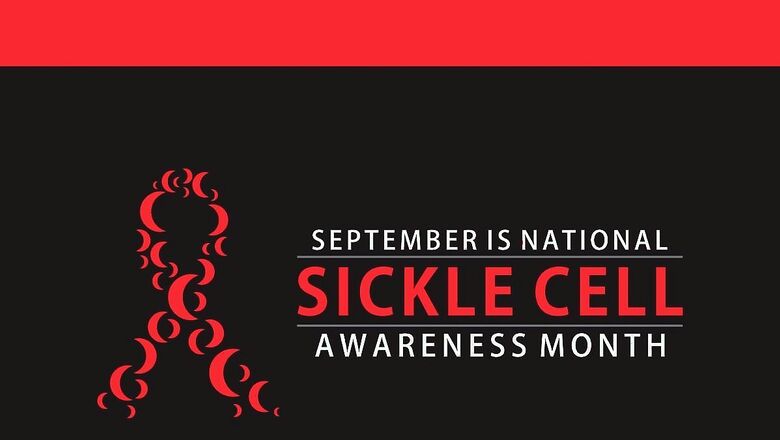
views
WORLD SICKLE CELL DAY 2023: World Sickle Cell Day, observed annually on June 19, aims to raise awareness and promote understanding of sickle cell disease, highlighting the challenges faced by individuals and their families. Recognized as a public health issue by the United Nations General Assembly in 2008, sickle cell disease, specifically sickle cell anaemia, was one of the earliest identified hereditary disorders.
WHAT IS SICKLE CELL DISEASE?
Sickle cell disease is an inherited blood disorder characterized by abnormally shaped red blood cells that tend to stick together, impeding the flow of blood and oxygen throughout the body. This condition affects the normal functioning of haemoglobin, the protein found in red blood cells. In individuals with sickle cell disease, an abnormal form of haemoglobin called haemoglobin S causes the red blood cells to take on a sickle-like shape.
WORLD SICKLE CELL DAY 2023: SYMPTOMS
Symptoms of Sickle Cell Disease-Symptoms of sickle cell disease can vary in severity, and individuals may require frequent hospitalization. According to the American Society of Hematology, common symptoms include anaemia, dark urine, yellowing of the eyes, painful swelling of the hands and feet, recurrent pain throughout the body, stunted growth, and the risk of stroke.
WORLD SICKLE CELL DAY 2023: TYPES
The Centers for Disease Control and Prevention (CDC) recognises three types of sickle cell disease:
- HbS beta-thalassemiaThis type of sickle cell disease occurs when a person inherits the beta-thalassemia gene from one parent and the sickle cell gene from the other.
- HbSS (Sickle Cell Anaemia)When a child inherits sickle cell genes from both parents, they develop sickle cell anaemia, which is the most common and severe form of sickle cell disease.
- HbSCThis type of sickle cell disease occurs when one parent carries the sickle cell gene and the other parent has abnormal haemoglobin. Treatment for Sickle Cell Disease
WORLD SICKLE CELL DAY 2023: TREATMENT
Management of sickle cell disease typically involves specialized medical care. Additionally, the National Health Service (NHS) recommends several self-care measures for individuals with the condition. Staying well-hydrated by drinking plenty of fluids is important.
Painkillers such as paracetamol or ibuprofen can be used for mild pain relief, however, it is important to consult a medical professional. The NHS also suggests gently massaging the affected body part with a warm towel or using a wrapped heating pad for pain relief.



















Comments
0 comment